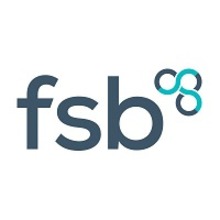Confidence among small business in the South West has fallen to a record low as fears grow about rising costs – with the region now the most pessimistic of any part of the country.
The gloomy outlook comes from the latest survey by the FSB (Federation of Small Businesses), which measures business sentiment each quarter, while two other reports this week also painted a picture of weakening confidence and mounting pressures on firms in the face of a rapidly slowing economy.
The most recent FSB figures show that, aside from the height of the Covid pandemic, positivity amongst small firms in the South West is at its lowest level since the surveys began in 2014.
The two biggest barriers to growth for FSB members taking part in the survey were the general economic conditions in the UK and rising utility costs, while there was an increase in the number of small business owners saying they are likely to cut staff rather than increase employment over the next three months.
The survey was carried out before last month’s change of prime minister and the raft of dire economic predictions coming from The Treasury and other organisations.
The conclusions reveal that the confidence rating for the South West was at minus 47, down from minus 39 at the end of the previous quarter.
Two-thirds said the UK’s general economic conditions were the main barrier to growth, with 34% naming utility costs and 30% fuel and finding appropriate staff as other major concerns. 
Fewer than 9% had taken on new staff over the previous three months while 67% had increased salaries over the past year – with 63% saying they had given pay rises above 2%.
FSB South West regional policy representative Craig Carey-Clinch, pictured, said: “With so much political and economic turmoil around at the moment it is perhaps no surprise that our businesses are finding it so hard to feel confident.
“Businesses want stability and the right environment to get on with their jobs and we must hope that those in power realise that many great SMEs are struggling at the moment to stay positive and need support, understanding and sensible pro-business policies to help them get back on track.”
FSB National Chair Martin McTague said he hoped the report was a wake-up call to politicians to improve business conditions, so more businesses are not lost.
“The government’s own annual figures show that two years of Covid has left the small business population smaller by half a million small firms and the self-employed.
“This gap of missing entrepreneurs, alongside those that have left the jobs market, should be the focus of medium-term growth measures, to help small businesses start up, grow, and recruit,” he added.
The findings of the FSB survey were echoed by the latest Business Barometer from Lloyds Bank Commercial Banking, which was conducted around the same time.
It shows business confidence in the South West fell four percentage points during October to minus 4%.
While companies in the region reported higher confidence in their own business prospects month-on-month, -up two points at 9% – when taken alongside their optimism in the economy, which was down 11 points to minus 18%, it gives a headline confidence reading of minus 4%.
A third alarming report, this time from insolvency and restructuring trade body R3, shows the South West experiencing the biggest increase in insolvency-related activity of any UK region in the third quarter.
R3’s analysis of data provided by Creditsafe shows 396 cases – an increase of 23.4% from the previous three months.
R3 South West chair Charlotte May, pictured, said there were a multitude of pressures impacting businesses including inflation, energy price increases and salary demands, even before yesterday’s 0.75 percentage points increase in interest rates to 3% by the Bank of England – the biggest hike since 1989.
The Bank also forecast that the UK now faces a “very challenging” two-year recession – which would be the longest on record.
“Unfortunately, this means that many directors are now having to make tough decisions about their long-term future, and with costs only expected to rise further in the coming months, it is likely that this increase in insolvency-related activity is only the beginning,” Charlotte May added.






























